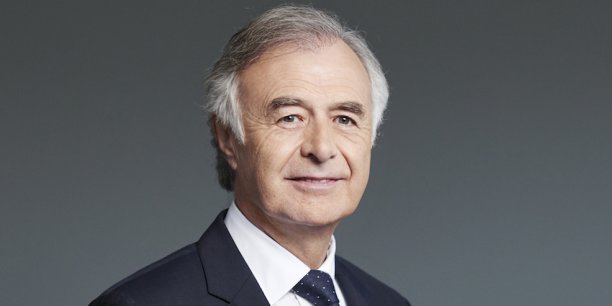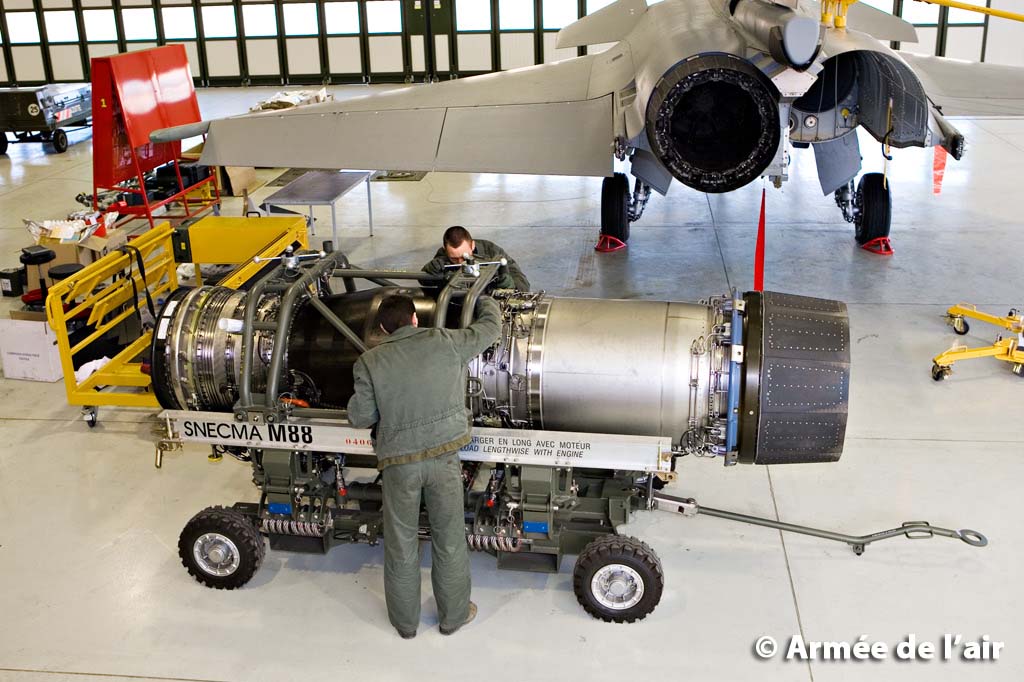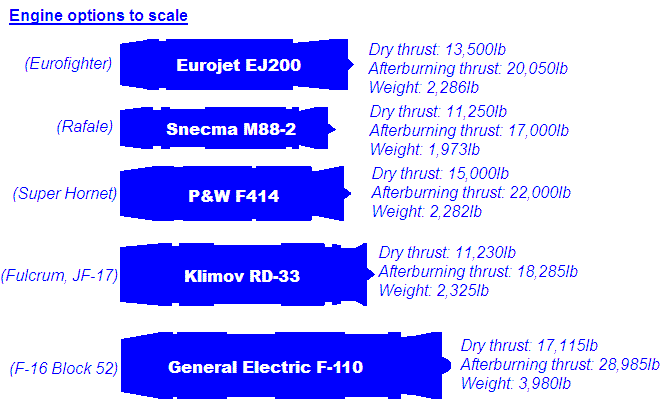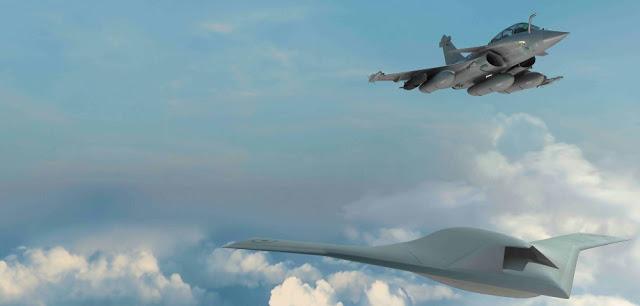"Safran will have control of Zodiac Aerospace in early 2018" (Philippe Petitcolin, CEO of Safran)
By Interview by Michel Cabirol | 26/06/2017, 6:56 | 1730 words

"The orders of the two major aircraft manufacturers (Airbus and Boeing, ed) were much higher than we expected before the Paris Air Show" (Phlippe Petitcolin, CEO of Safran) (Credits: DR)
Philippe Petitcolin is a Safran CEO. LEAP motor drives are raining; The supply chain holds up against the incredible rise of LEAP; The acquisition of Zodiac Aerospace is now being finalized, the development of the Silvercrest engine and the Patroller drone are on track. Safran could even accept an acceleration of 10% of the increase in charge of the LEAP.
Le Bourget 2017 was a very good vintage for Safran. How do you analyze it?
In terms of order taking, this edition of the Paris Air Show was indeed a very good show for Safran. Why ? We are still seeing a very strong demand for short and medium haul flights from airlines and rental companies. This is favorable for Safran, both at Airbus and Boeing. The orders of the two major aircraft manufacturers were far superior to what we had anticipated before the show. We reap the rewards with very large orders of engines.
You have actually benefited from the arrival of the Boeing MAX 10. Did you come too late in the market of medium haul?
It is up to Boeing to decide the right timing to launch a new product. Boeing believes that the 737 MAX 10 has its place in the overall 737 MAX range and in the medium haul market. The first orders announced at the Paris Air Show show that this aircraft really has a dedicated market and customer base. We are delighted that we are providing the powerplant for this aircraft, and other equipment. So it's very positive for us.
Boeing seems very hot to launch a device for the Middle of the Market ...
... Again if Boeing decides to launch such a device, Safran will listen. We will propose to Boeing our products on this new aircraft in the field of equipment and motorization. Boeing must, however, resolve the competitiveness equation of this new product, taking into account its definition and target market.
Boeing and Airbus have asked CFM International to accelerate the rate increase. What was not possible a year ago, is it today?
It is still an objective that we are aiming for but we can not make commitments today that are fundamentally different from those we took a year ago. We are in the midst of a steady rise in the production of the new LEAP engine and again in the learning curve. Our supply chain is also under great pressure. I remind you that the suppliers are largely the same as those we have on the CFM56, which continues to garner large orders. We ensure that our global supply chain, whether internal or external, Can meet the demand of aircraft manufacturers. And we feel that engaging on additional engine quantities, while they are already at significant levels, is not reasonable. On the other hand, we strongly agree to review this position at a time when we believe we have passed the most difficult period of this increase.
On what horizon?
Certainly in the second half of 2018. At that time, we should have a good understanding of the responsiveness of our supply chain and its potential additional potential.
And if you responded positively to Airbus and Boeing, what could be the level of this acceleration of the increase in load? 10%?
It's a little early to talk about it but yes, the order of magnitude is about ten percent. The aircraft manufacturers are asking us to accelerate the production rates to reach about 60 aircraft a month.
Is the supply chain already able to absorb the rising output of LEAP?
I think. Safran does it all. The installation of a double source on all the parts of the engine is rather reassuring but the situation remains tense. To say today that everything is easy and that the supply chain has the potential to go much faster would not be correct. Every day is a new challenge and every day is a success today. So it holds, but it remains difficult. We knew it. Certainly we have small problems of youth as in all programs, but overall the engines are well born. What is very positive, on the other hand, is the performance of the engine. The engine configuration seems to be in the best state of the art,
Unlike your competitor Pratt & Whitney?
I will not venture to say so.
The balance of the show is eloquent ...
... I will make no deduction.
On a more complicated program like the Silvercrest, have you come out of the problems?
Development has been back on track. On the other hand, we can not catch up with the delays. Today we are on a schedule that certifies the engine in the first half of 2018, it is generally in line with the commitments we made two years ago.
Are you confident?
I prefer to wait for engine certification. If I am confident? Yes. Are the teams working well? Yes. Are we in line with our commitments? Yes. But experience on this development prompts me to remain cautious. We work with our two customers, Dassault Aviation and Cessna. Having been selected by a second customer proves that we have a good product today.
On the Rafale, do you have any hopes of increasing the thrust of the engine?
We have not had discussions with the DGA, the Air Force and the Navy, who are the users of the Rafale. Personally, I am campaigning for an increase in the thrust of the M88 engine because I think that eventually the plane will need it. The plane has grown since its origin - which is normal - but the engine has remained the same. That the engine increases its power would seem to be a normal decision, but it is up to the armies and the DGA to take it. The risk would be that one day it is realized that the engine is no longer powerful enough compared to what one wants to make to the Rafale,
Why not start with a small increase in the thrust of the M88?
The thrust of the M88 can actually increase from 7.5 tons to more than 8 tons - between 8 and 8.3 tons - without touching the air intakes, so without touching the plane, simply by working on the engine. That is an increase of about ten percent. Beyond that, if the DGA and the armies wish to go to higher ranges of power, of the type 9 tons for example, the modernization of the engine would pass through a more structural modification of the Rafale.
Is there not a fear on the consulting firms?
There is indeed a problem of maintaining competence in the area of the military which should not be underestimated. It is real.
Could an export contract be the trigger for this modernization?
This may be possible with India and its engine, the Kaveri. Today, the M88 is reliable and meets the needs. For armies, it is therefore always difficult to prioritize such a development.
Where are you on the Patroller? Why not offer it for export?
Development is going well. I do not want for the moment that Safran offers it to export because I really want to ensure a good development. The Army has trusted us, it is up to us to honor this confidence by delivering on time the product on the conditions we have guaranteed. Until we reach a level where I would consider the product to be born, I will not allow teams to prospect for this product for export. Why ? Since we have more or less the same teams, I really want them to focus entirely on the fulfillment of the contract we have signed. Of course,
You won your bet by buying Zodiac Aerospace. Is the hardest behind you?
There was an important step last week with the Safran General Assembly, which voted over 90% in favor of the project. That is very positive. This result gives us total confidence in the realization of this project. We are now entering into administrative and regulatory phases, with in particular anti-trust procedures, which will take some time before we can launch the takeover bid as we have formulated it in our offer. I hope that we will have control of Zodiac Aerospace in early 2018.
Do you have a more detailed view of the state of health of Zodiac Aerospace today?
We have a better vision than at the beginning of the year. Our vision has been refined through the due diligence we have entrusted to Deloitte. We also visited seven Zodiac plants ourselves. This gave us a better idea of the potential and state of the industrial tool. Saying that we have a comprehensive and comprehensive view of Zodiac would not be accurate. Zodiac has 127 sites.
But do you have any doubt about the potential of Zodiac Aerospace?
No. For example, the Aerosystems business is doing very well. Profitability is there, turnover too. We trust them but say we've seen everything, that we know everything about Zodiac, would not be correct.
Is Zodiac Aerospace a group that has never integrated its acquisitions?
Absolutely. Zodiac bought out many companies and let them live like satellites. It was their business model. As a result, Zodiac did not integrate and did not set up or very few industrial processes. In any case, I did not see any. They do not have, for example, a development process that is applied by the whole group with milestones. Non-integration is also visible in the supply chain. They have more than 6,700 suppliers while Safran has less than 2,000. They have also failed to integrate information systems.
http://www.latribune.fr/entreprises...-philippe-petitcolin-dg-de-safran-741590.html
اللقاء الذي نشرته لا تريبيون ,, افاد فيه CEO شركة سافران الفرنسية ان بمقدور محرك M-88 ( محرك الرافال ) توفير اكثر من 8 طن قوة دفع بدون تعديلات هيكلية على المقاتلة نفسها .. فقط بالعمل على المحرك نفسه .

محرك صغير بحجمه .. كبير بأداءه وقابلية توسعة قدراته ..

كذلك جاء اعلاه التالي :
That is an increase of about ten percent. Beyond that, if the DGA and the armies wish to go to higher ranges of power, of the type 9 tons for example, the modernization of the engine would pass through a more structural modification of the Rafale.
رفع القدرة هذا يشكّل نسبة 10% زيادة في القدرة الحالية للمحرك ,, ولو رغبة وكالة المشتريات الدفاعية الفرنسية DGA الوصول لمستوى اعلى من القوة ( 9 طن كمثال ) هنا سيتطلب اجراء تعديلات هيكلية على الرافال .
***********
اعتقد ان الخبر الجديد سيشكل دافعا اضافيا للزبائن على النظر باهتمام في اختيار الرافال .. اتمنى ان تعتمد سافران التطوير الجديد ووضع اطار زمني لتنفيذه + توضيح تصور وآلية التحديث الممكن عمله على محركات الرافال حول العالم لدى الزبائن المختلفين ( قطر , مصر , الهند , فرنسا ) ..
By Interview by Michel Cabirol | 26/06/2017, 6:56 | 1730 words

"The orders of the two major aircraft manufacturers (Airbus and Boeing, ed) were much higher than we expected before the Paris Air Show" (Phlippe Petitcolin, CEO of Safran) (Credits: DR)
Philippe Petitcolin is a Safran CEO. LEAP motor drives are raining; The supply chain holds up against the incredible rise of LEAP; The acquisition of Zodiac Aerospace is now being finalized, the development of the Silvercrest engine and the Patroller drone are on track. Safran could even accept an acceleration of 10% of the increase in charge of the LEAP.
Le Bourget 2017 was a very good vintage for Safran. How do you analyze it?
In terms of order taking, this edition of the Paris Air Show was indeed a very good show for Safran. Why ? We are still seeing a very strong demand for short and medium haul flights from airlines and rental companies. This is favorable for Safran, both at Airbus and Boeing. The orders of the two major aircraft manufacturers were far superior to what we had anticipated before the show. We reap the rewards with very large orders of engines.
You have actually benefited from the arrival of the Boeing MAX 10. Did you come too late in the market of medium haul?
It is up to Boeing to decide the right timing to launch a new product. Boeing believes that the 737 MAX 10 has its place in the overall 737 MAX range and in the medium haul market. The first orders announced at the Paris Air Show show that this aircraft really has a dedicated market and customer base. We are delighted that we are providing the powerplant for this aircraft, and other equipment. So it's very positive for us.
Boeing seems very hot to launch a device for the Middle of the Market ...
... Again if Boeing decides to launch such a device, Safran will listen. We will propose to Boeing our products on this new aircraft in the field of equipment and motorization. Boeing must, however, resolve the competitiveness equation of this new product, taking into account its definition and target market.
Boeing and Airbus have asked CFM International to accelerate the rate increase. What was not possible a year ago, is it today?
It is still an objective that we are aiming for but we can not make commitments today that are fundamentally different from those we took a year ago. We are in the midst of a steady rise in the production of the new LEAP engine and again in the learning curve. Our supply chain is also under great pressure. I remind you that the suppliers are largely the same as those we have on the CFM56, which continues to garner large orders. We ensure that our global supply chain, whether internal or external, Can meet the demand of aircraft manufacturers. And we feel that engaging on additional engine quantities, while they are already at significant levels, is not reasonable. On the other hand, we strongly agree to review this position at a time when we believe we have passed the most difficult period of this increase.
On what horizon?
Certainly in the second half of 2018. At that time, we should have a good understanding of the responsiveness of our supply chain and its potential additional potential.
And if you responded positively to Airbus and Boeing, what could be the level of this acceleration of the increase in load? 10%?
It's a little early to talk about it but yes, the order of magnitude is about ten percent. The aircraft manufacturers are asking us to accelerate the production rates to reach about 60 aircraft a month.
Is the supply chain already able to absorb the rising output of LEAP?
I think. Safran does it all. The installation of a double source on all the parts of the engine is rather reassuring but the situation remains tense. To say today that everything is easy and that the supply chain has the potential to go much faster would not be correct. Every day is a new challenge and every day is a success today. So it holds, but it remains difficult. We knew it. Certainly we have small problems of youth as in all programs, but overall the engines are well born. What is very positive, on the other hand, is the performance of the engine. The engine configuration seems to be in the best state of the art,
Unlike your competitor Pratt & Whitney?
I will not venture to say so.
The balance of the show is eloquent ...
... I will make no deduction.
On a more complicated program like the Silvercrest, have you come out of the problems?
Development has been back on track. On the other hand, we can not catch up with the delays. Today we are on a schedule that certifies the engine in the first half of 2018, it is generally in line with the commitments we made two years ago.
Are you confident?
I prefer to wait for engine certification. If I am confident? Yes. Are the teams working well? Yes. Are we in line with our commitments? Yes. But experience on this development prompts me to remain cautious. We work with our two customers, Dassault Aviation and Cessna. Having been selected by a second customer proves that we have a good product today.
On the Rafale, do you have any hopes of increasing the thrust of the engine?
We have not had discussions with the DGA, the Air Force and the Navy, who are the users of the Rafale. Personally, I am campaigning for an increase in the thrust of the M88 engine because I think that eventually the plane will need it. The plane has grown since its origin - which is normal - but the engine has remained the same. That the engine increases its power would seem to be a normal decision, but it is up to the armies and the DGA to take it. The risk would be that one day it is realized that the engine is no longer powerful enough compared to what one wants to make to the Rafale,
Why not start with a small increase in the thrust of the M88?
The thrust of the M88 can actually increase from 7.5 tons to more than 8 tons - between 8 and 8.3 tons - without touching the air intakes, so without touching the plane, simply by working on the engine. That is an increase of about ten percent. Beyond that, if the DGA and the armies wish to go to higher ranges of power, of the type 9 tons for example, the modernization of the engine would pass through a more structural modification of the Rafale.
Is there not a fear on the consulting firms?
There is indeed a problem of maintaining competence in the area of the military which should not be underestimated. It is real.
Could an export contract be the trigger for this modernization?
This may be possible with India and its engine, the Kaveri. Today, the M88 is reliable and meets the needs. For armies, it is therefore always difficult to prioritize such a development.
Where are you on the Patroller? Why not offer it for export?
Development is going well. I do not want for the moment that Safran offers it to export because I really want to ensure a good development. The Army has trusted us, it is up to us to honor this confidence by delivering on time the product on the conditions we have guaranteed. Until we reach a level where I would consider the product to be born, I will not allow teams to prospect for this product for export. Why ? Since we have more or less the same teams, I really want them to focus entirely on the fulfillment of the contract we have signed. Of course,
You won your bet by buying Zodiac Aerospace. Is the hardest behind you?
There was an important step last week with the Safran General Assembly, which voted over 90% in favor of the project. That is very positive. This result gives us total confidence in the realization of this project. We are now entering into administrative and regulatory phases, with in particular anti-trust procedures, which will take some time before we can launch the takeover bid as we have formulated it in our offer. I hope that we will have control of Zodiac Aerospace in early 2018.
Do you have a more detailed view of the state of health of Zodiac Aerospace today?
We have a better vision than at the beginning of the year. Our vision has been refined through the due diligence we have entrusted to Deloitte. We also visited seven Zodiac plants ourselves. This gave us a better idea of the potential and state of the industrial tool. Saying that we have a comprehensive and comprehensive view of Zodiac would not be accurate. Zodiac has 127 sites.
But do you have any doubt about the potential of Zodiac Aerospace?
No. For example, the Aerosystems business is doing very well. Profitability is there, turnover too. We trust them but say we've seen everything, that we know everything about Zodiac, would not be correct.
Is Zodiac Aerospace a group that has never integrated its acquisitions?
Absolutely. Zodiac bought out many companies and let them live like satellites. It was their business model. As a result, Zodiac did not integrate and did not set up or very few industrial processes. In any case, I did not see any. They do not have, for example, a development process that is applied by the whole group with milestones. Non-integration is also visible in the supply chain. They have more than 6,700 suppliers while Safran has less than 2,000. They have also failed to integrate information systems.
http://www.latribune.fr/entreprises...-philippe-petitcolin-dg-de-safran-741590.html
اللقاء الذي نشرته لا تريبيون ,, افاد فيه CEO شركة سافران الفرنسية ان بمقدور محرك M-88 ( محرك الرافال ) توفير اكثر من 8 طن قوة دفع بدون تعديلات هيكلية على المقاتلة نفسها .. فقط بالعمل على المحرك نفسه .

محرك صغير بحجمه .. كبير بأداءه وقابلية توسعة قدراته ..

كذلك جاء اعلاه التالي :
That is an increase of about ten percent. Beyond that, if the DGA and the armies wish to go to higher ranges of power, of the type 9 tons for example, the modernization of the engine would pass through a more structural modification of the Rafale.
رفع القدرة هذا يشكّل نسبة 10% زيادة في القدرة الحالية للمحرك ,, ولو رغبة وكالة المشتريات الدفاعية الفرنسية DGA الوصول لمستوى اعلى من القوة ( 9 طن كمثال ) هنا سيتطلب اجراء تعديلات هيكلية على الرافال .
***********
اعتقد ان الخبر الجديد سيشكل دافعا اضافيا للزبائن على النظر باهتمام في اختيار الرافال .. اتمنى ان تعتمد سافران التطوير الجديد ووضع اطار زمني لتنفيذه + توضيح تصور وآلية التحديث الممكن عمله على محركات الرافال حول العالم لدى الزبائن المختلفين ( قطر , مصر , الهند , فرنسا ) ..

